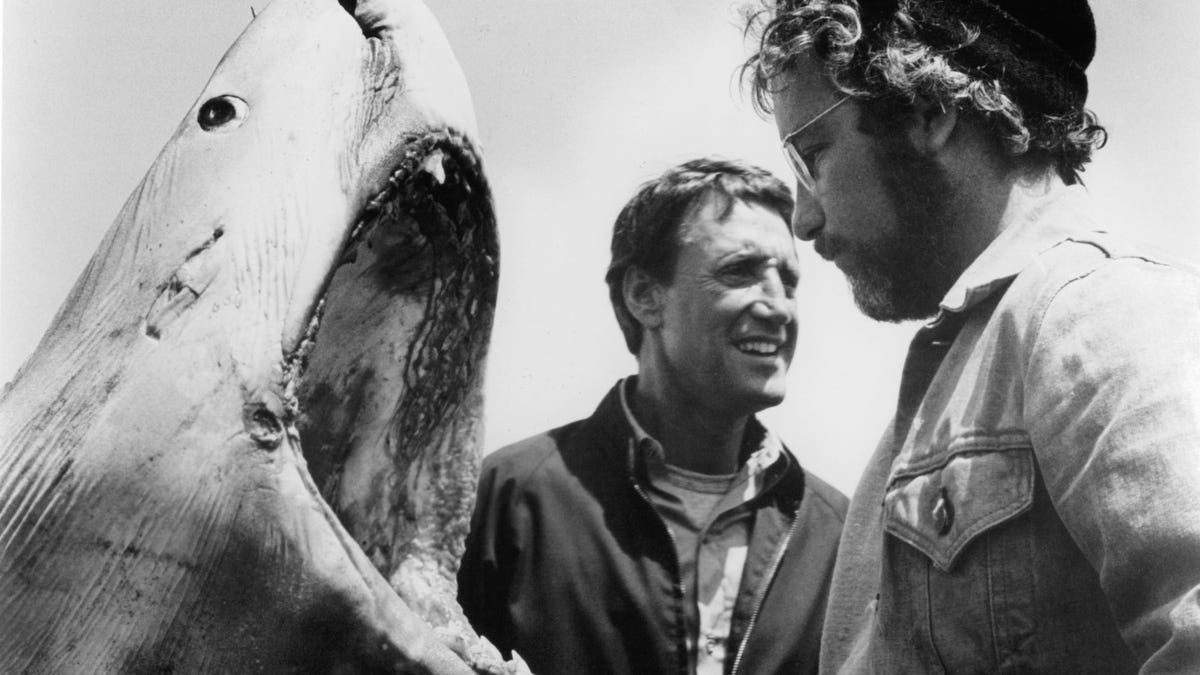Dear Sharks, Steven Spielberg Is Sorry About What 'Jaws' Did to You
The global population of sharks and rays declined by more than 71% between 1970 and 2018, a study reports, and Spielberg thinks the film may have contributed.

In a scene from the 1975 movie Jaws, Roy Scheider and Richard Dreyfuss stand next to a great white shark with a hook through it.
Sharks, Steven Spielberg is sorry. The director of the 1975 summer blockbuster movie Jaws said he feels responsible for the deadly impact the film may have had on shark populations.
Spielberg, who was just 27 when he made Jaws, said he fears "sharks are somehow mad at me for the feeding frenzy of crazy sport fishermen that happened after 1975, which I truly, and to this day, regret ... the decimation of the shark population because of the (Peter Benchley) book and the film, I really truly regret that," the director said in a Desert Island Discs interview with BBC Radio published on Sunday.
It does appear something took a gigantic bite out of the shark population from the 1970s on through today. According to a 2021 study published in the journal Nature, the worldwide population of sharks and rays declined by more than 71% between 1970 and 2018. (Although Gavin Naylor, director of the Florida Program for Shark Research, told The Washington Post he believes people would've fished for sharks without the movie.)
While Spielberg may feel bad about any influence his movie had, he didn't actually show the shark much in the famous film. Three mechanical sharks were made for it, but they were unreliable and the foam they were made of soaked up water and made them bloat. For that reason, the director chose not to show the shark much, which built suspense and improved the film, he says.
"It's a much better movie that the shark kept breaking down, because I had to be resourceful in figuring out how to create suspense and terror without seeing the shark itself," Spielberg said in the interview. He noted that famed director Alfred Hitchcock followed a similar philosophy in his films, finding ways to scare the audience "without really seeing anything.
"It was just good fortune for me that the shark kept breaking," Spielberg said. "It was my good luck and I think it was the audience's good luck too ... it's a scarier movie without seeing too much of the shark."

